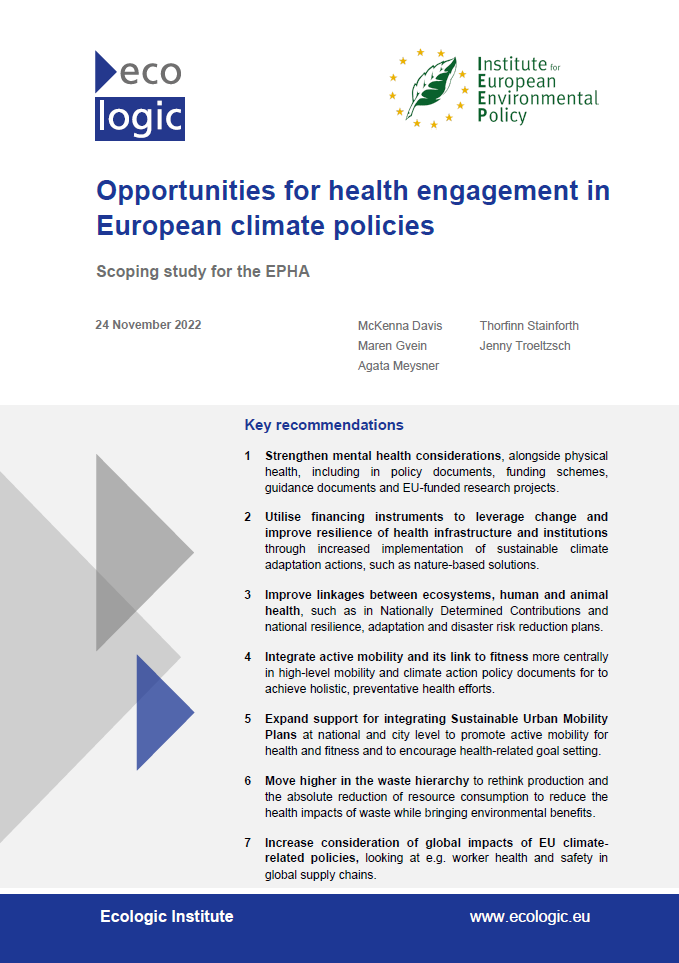Photo by Jarosław Kwoczała via Unsplash
Heat Resilient European Regions
- Event
- Date
-
- Location
- online
- Speaker
On 15 September 2025, Ecologic Institute and BC3 Basque Centre for Climate Change hosted the ACCREU Workshop: "Heat Resilient European Regions", focusing on what drives or hinders the implementation of health-related adaptation to heat at regional and local levels. This interactive workshop gathered insights and experiences on enabling factors and barriers, helping us understand why adaptation efforts have succeeded – or struggled –on the ground.
The workshop was moderated by fellow Katriona McGlade and opened with an introduction to the ACCREU project, followed by a session on heat and health featuring an expert presentation by Jonas Gerke from German Alliance on Climate Change and Health (KLUG) and spotlights from practice in Bremen, the Basque Country and the City of Worms. Flora Dicke presented a discussion input on barriers and enablers of heat-related adaptation in the health sector, followed by small group discussions. A second session turned to climate vulnerabilities and inequalities, with a presentation by Ana-Terra Amorim-Maia from the Basque Centre for Climate Change and an open exchange.
The discussions showed that planning adaptation strategies such as Heat Action Plans involves considerable coordination, with responsibilities often split across several departments and dozens of actors. However, when there is clear leadership for the process, these plans are generally manageable. At the same time, implementation remains challenging – particularly in reaching vulnerable populations and financing Nature-Based Solutions (NBS). Participants from Bremen and the Basque Country emphasised that short-term project funding and increasing maintenance costs of green infrastructure are major barriers. These practical constraints are compounded by competing priorities such as education and infrastructural needs. Connecting to supportive stakeholders and making use of existing structures for reaching particular target groups rather than creating new ones was identified as an enabling factor. Furthermore, monitoring benefits of interventions to produce quantitative data, and raising political awareness through direct engagement with decision-makers can increase support and effectiveness of Heat Action Plans.
Ecologic Institute organized the workshop together with colleagues from Basque Centre for climate change (BC3).




